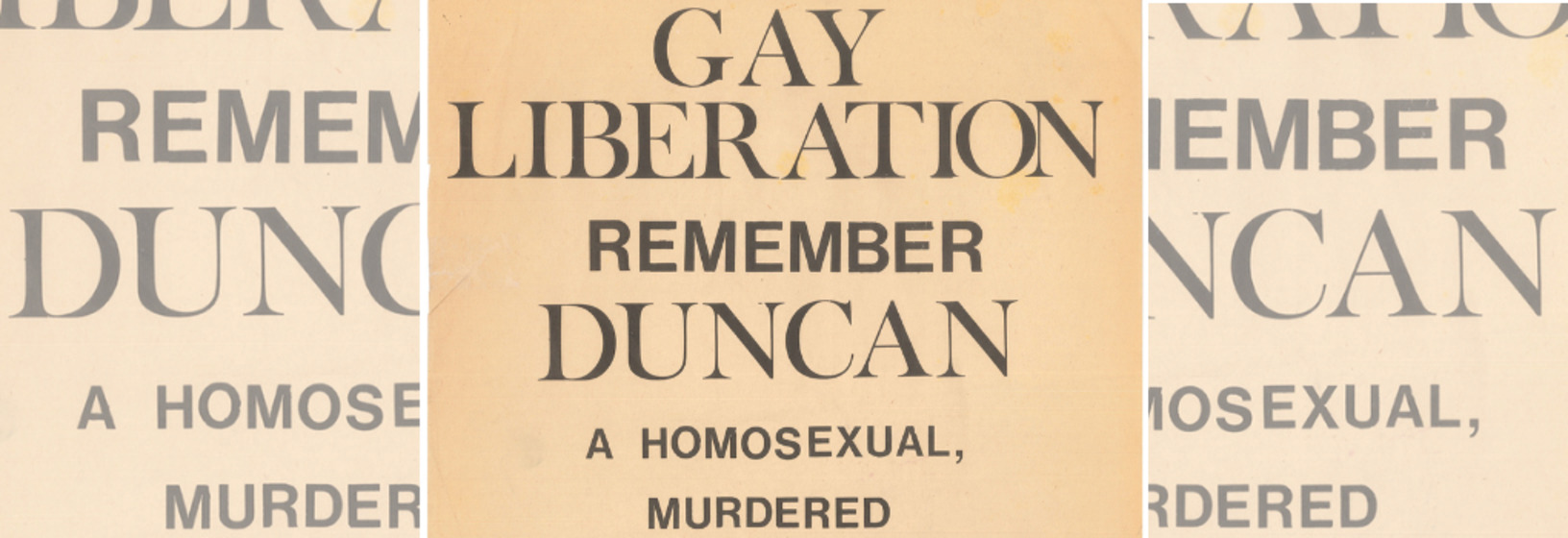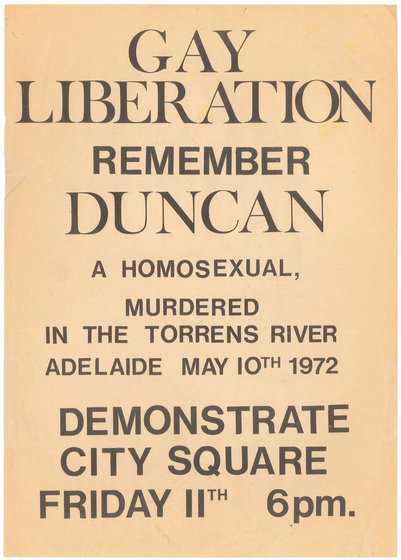Remember Duncan
The murder of Dr George Duncan (1930-1972) in Adelaide captured the attention of the media, the public and the gay movement.
Duncan had attended Melbourne Church of England Grammar School where he won prizes and scholarships and was dux in 1947. He continued his studies at the University of Melbourne before his honours degree in classical philology was interrupted in 1950 by a bout of tuberculosis. His later studies in law took him to Cambridge where he was awarded his BA, LLB, MA and PhD between 1960 and 1964. He returned to Australia in March 1972 to take up a lectureship in law at the University of Adelaide.
Duncan was drowned in the Torrens River barely two months after moving to Adelaide, in an area that was relatively well known as a gay meeting place, or beat. Rumours soon spread that Duncan had been killed by three plain-clothed policemen who had been ‘poofter bashing’ and had thrown Duncan, and another man, into the river. An inquest soon followed with which the three policemen refused to cooperate. Police command subsequently called in Britain’s Scotland Yard, and the SA Government offered a $5000 reward and free pardon to anyone helping the enquiry.
The gay movement, and in particular Gay Liberation, took up the case. Articles in Gay Liberation newsletters, student newspapers, badges, and annual commemorations and demonstrations harnessed Duncan’s death to the broader campaign against gay oppression and for gay rights, gaining nationwide publicity. In 1972, South Australia became the first state to legislate towards decriminalisation which occurred in full in 1975. On 30 September 1988, two ex-members of the Vice Squad were acquitted of Duncan’s manslaughter. A police task force interviewed eighty-one people and reported to parliament in April 1990 that there was ‘insufficient evidence to charge any other person’. The case remains unsolved.












